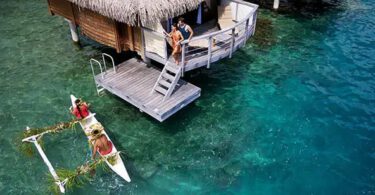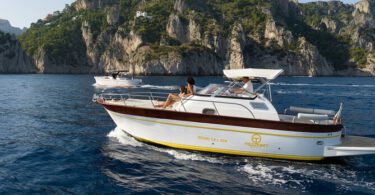Ecuador is a dream for luxury yacht charters, offering everything from the surging South Pacific coastline to the towering peaks of the Andes and the lush depths of the Amazon rainforest. Often paired with a Galapagos Islands sailing adventure, Ecuador delivers the perfect balance of historic architecture, fine dining, sun-soaked beaches, and adrenaline-filled activities. From watching condors soar overhead to spotting whales, surfing epic waves, rafting wild rivers, and meeting shamans in the jungle, Ecuador is a one-of-a-kind charter destination.
What Employers Are Offering
- ✔ Employer-provided health & medical insurance
- ✔ Visa sponsorship & legal work authorization
- ✔ Relocation assistance & settlement support
- ✔ Long-term employment & benefit coverage
- ✔ Permanent residency pathways (eligible roles)
Reasons to Charter a Yacht to Ecuador
Insurance & Worker Protection Requirements
Before visa approval, many employer-sponsored programs require proof of valid health insurance coverage and worker protection compliance. Immigration authorities verify medical coverage eligibility before granting work authorization.
Employment Benefit Eligibility Information
Applicants searching for international employment opportunities often compare roles offering employer-sponsored insurance coverage, relocation support, and legally compliant work authorization programs.
- Jobs with employer-provided health insurance benefits
- Visa sponsorship positions including medical coverage
- Full-time employment with dental and vision insurance
- High salary jobs offering worker protection benefits
- Healthcare and caregiver roles including insurance coverage
Understanding benefit eligibility requirements helps applicants evaluate qualified employment offers before submitting immigration applications.
Depending on the destination country, foreign employees may also need workplace injury protection, employer liability coverage, and travel medical insurance during relocation.
- Mandatory health insurance for visa holders
- Workplace accident and employer liability protection
- Travel and relocation medical coverage
- Insurance verification during immigration processing
Confirm insurance compliance requirements before submitting a work permit application.
1. South Pacific Perfection
Hugging the South Pacific Ocean, Ecuador offers endless beaches with something for everyone. Whether you’re looking for lively salsa vibes on the sand, thrilling surf breaks, or diving adventures around sunken wrecks, Ecuador has a coastal paradise waiting.
-
Salango is ideal for underwater exploration.
-
Puerto Lopez offers upscale beach escapes.
-
Isla de la Plata charms with pristine nature and wildlife.
2. Cultural Smorgasbord
From the highland culture of the Andes to the spiritual traditions of the Amazon, Ecuador is a rich tapestry of South American heritage.
-
Quito, the capital, is filled with 17th-century monasteries, colonial mansions, and bustling plazas.
-
Indigenous markets and artisan textiles reflect centuries-old traditions.
-
Ecuadorian cuisine blends fresh seafood, tropical fruits, and Andean flavors.
3. Two Destinations in One
A yacht charter in Ecuador offers easy access to the Galapagos Islands.
-
Ecuador itself is home to UNESCO cities, cloud forests, and volcanic peaks.
-
The Galapagos bring unmatched wildlife encounters, from giant tortoises to blue-footed boobies.
Where to Visit on a Yacht Charter in Ecuador
Salinas – The Miami of Ecuador
Known for its sunny shoreline, Salinas is perfect for yachters looking for both relaxation and adventure. Enjoy surfing in Punta Brava or visit nearby Montañita for vibrant nightlife. Bird watchers will love spotting flamingos and parrotlets.
Quito – The Andean Jewel
At 2,850 meters above sea level, Quito is the world’s second-highest capital city.
-
Wander its UNESCO Old Town.
-
Explore architectural wonders.
-
Indulge in Ecuador’s growing fine dining scene.
Parque Nacional Machalilla
Ecuador’s only coastal national park offers beaches, dry forests, and magical cloud forests. Nearby Isla de la Plata is known as the “Poor Man’s Galapagos” for its rich biodiversity.
When to Charter a Yacht in Ecuador
-
Dry Season (June–September): Best for sailing with clear skies and calm seas.
-
Wet Season (December–April): Expect showers, but also lush landscapes and fewer crowds.
Quick Facts About Ecuador’s Beaches and Coastline
-
Coastal area covers 80,000 km² — about a quarter of Ecuador’s territory.
-
Features floodplains and coastal mountains between 300–900 meters high.
-
Famous for world-class surfing, scuba diving, and eco-tourism.
What Ecuador is Famous For
Ecuador is celebrated for:
-
The Galapagos Islands and their unique wildlife.
-
Diverse ecosystems — from the high Andes to the Amazon rainforest.
-
Rich cultural heritage and vibrant festivals.
-
Pristine beaches along the South Pacific.
Final Word
Whether you’re drawn by luxury yacht charters, the cultural magic of Quito, or the wild beauty of the Galapagos Islands, Ecuador is an unforgettable destination. Blending South Pacific beaches, Andean culture, and Amazonian adventure, it’s a place where every voyage becomes a once-in-a-lifetime experience.





